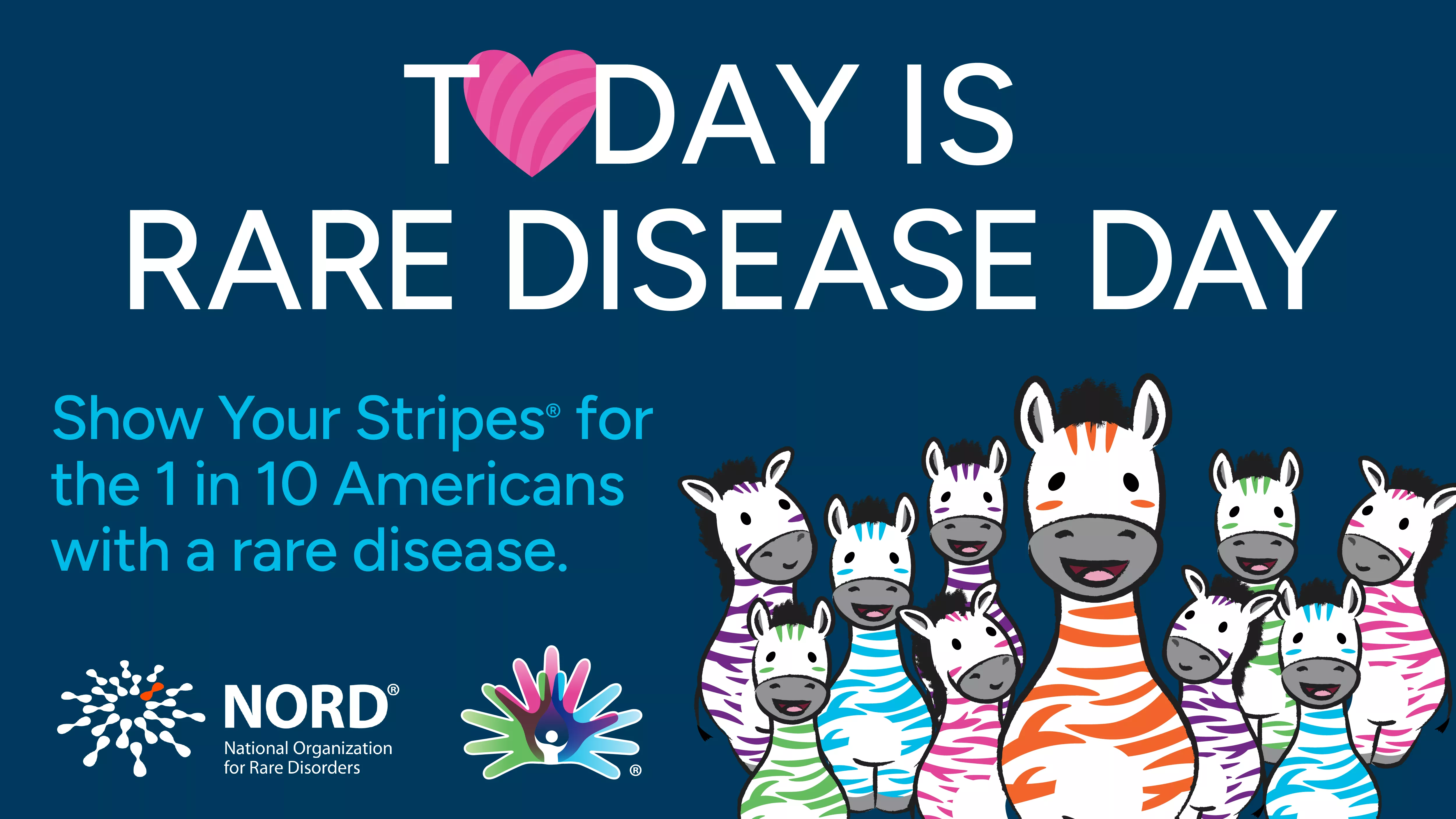
Working Toward Health Equity for People With Rare Diseases
More than 300 million people worldwide are living with one or more rare diseases. These people, along with their families, are often left to their own devices, forced to muddle through as best they can without answers or guidance. Rare Disease Day (the last day of February, launched by the European Organization for Rare Diseases in 2008) is a global effort to highlight the challenges and needs of those living with rare diseases, and support them on what can be a frustrating, and frightening, journey.
Understanding Rare Disease Awareness Month
Rare or ‘orphan’ diseases are defined differently in different countries. In the United States, a disease is classified as rare if it affects fewer than 200,000 people at any given time. However, with over 10,000 known rare diseases (90% of which have no approved treatment, much less a cure) affecting an estimated 30 million Americans, the cumulative impact is anything but minor.
This month is a critical time for education, advocacy, and community-building, with the aim of bringing much-needed attention and resources to the fight against rare diseases in all areas: prevention, treatments, symptom management, and cures.
The Importance of Rare Disease Awareness and Advocacy
The journey for patients with rare diseases is fraught with hurdles, from delayed diagnoses and a lack of treatment options to the financial burden of care and social isolation. Rare Disease Awareness Day shines a spotlight on these issues, seeking to improve patient outcomes through increasing:
- Interest in and funding for more rigorous and extensive research
- The discovery and development of more effective and accessible treatments
- The drafting and passing of more substantial, fair, and beneficial policy initiatives
By raising and spreading awareness of rare diseases and their impacts, we can:
- Reduce stigma
- Encourage empathy
- Empower patients, caregivers, advocates, clinicians, and other stakeholders, creating a stronger, more informed and active support network of all, and for all, who are affected
Challenges Faced by Individuals with Rare Diseases
Individuals living with rare diseases often experience a “diagnostic odyssey,” struggling for a minimum of five years to find an accurate diagnosis. Once diagnosed, many face the reality that their disease may have no approved treatment or cure, leaving patients and their families to navigate an uncertain social, professional, and financial future as best they can on their own.
The economic impact of managing a rare disease can be overwhelming, with extensive costs for medications and specialized care, along with complementary therapies that may not be covered by insurance.
In addition to physical challenges, people living with rare conditions can also face feelings of isolation, as it may be difficult to find others who can directly relate to their experiences.
Challenges in Advancing Rare Disease Research
Rare disease research is hindered by a variety of factors, not least of all:
- The relatively low numbers of people living with each known rare disease at any given point in time, making any given disease difficult to study
- The lack of established endpoints (events or outcomes that can be objectively measured to determine whether a treatment or other intervention is beneficial) for many rare diseases, leaving scientists with no roadmap for clinical trials
- The low return on investment that pharmaceutical companies and other potential study sponsors anticipate for a treatment or cure that might result from a study or series of studies
Fortunately, this last barrier has seen some turnaround in the past year, with increased investment being made in rare disease research overall, though not all rare diseases are benefitting equally.
How Can I Help Raise Awareness?
Educate Yourself and Others
One of the most powerful ways to participate is by educating yourself and others about rare diseases. Share articles, infographics, and personal stories on social media to spread awareness. Knowledge is the first step toward empathy and action. You can look for organizations that educate and advocate for your specific health concern, or follow ones that focus on the broader rare disease community.
Some options include:
- The National Organization for Rare Disorders (NORD)
- The EveryLife Foundation for Rare Diseases
- Rare Diseases International
- EURORDIS Rare Diseases Europe
Support Rare Disease Research and Charities
Donating to organizations that fund rare disease research or provide support to affected families can make a significant difference. Even small contributions can help fund crucial research projects or support services.
Advocate for Policy Change
Advocating for policy changes that benefit the rare disease community is vital. This can include supporting healthcare policies that improve access to treatments and protect patients from financial burdens. You can start by joining NORD’s RareAction Network or one of the other organizations mentioned above.
Join Events and Campaigns
Many organizations host events, virtual campaigns, and fundraising drives during Rare Disease Awareness Month. Participating in these events can help raise funds and increase visibility for rare diseases.
Listen to and Share Stories
Listening to and sharing the stories of individuals and families affected by rare diseases can be incredibly powerful. These personal narratives put a face to the statistics and highlight the human impact of rare conditions.
Rare Disease Awareness Month is a call to action for everyone to play a part in supporting the rare disease community. Whether through education, advocacy, or direct support, each effort contributes to a larger movement toward recognition, research, and resources for those affected.
By participating in Rare Disease Awareness Month, we can help bring hope and change to the millions living with rare diseases worldwide.

